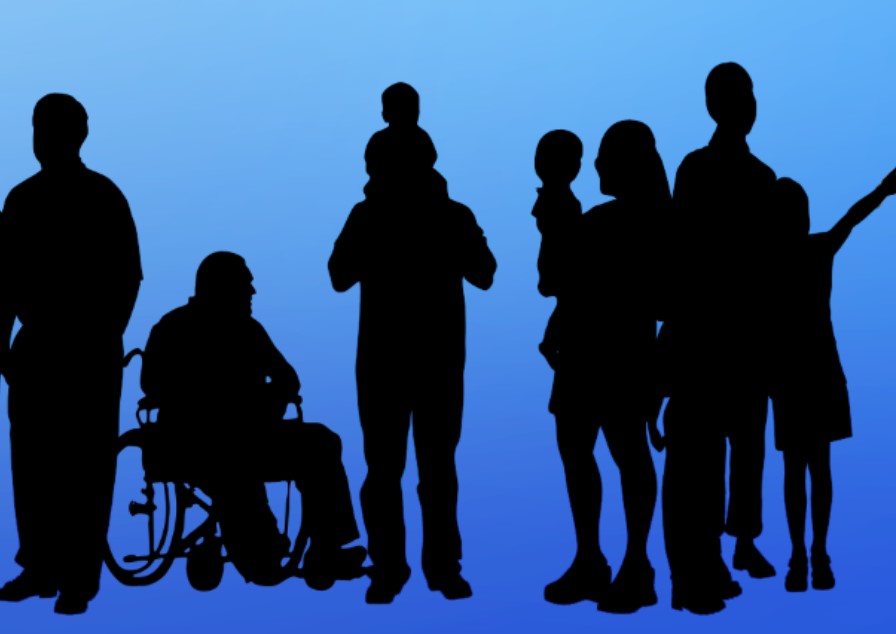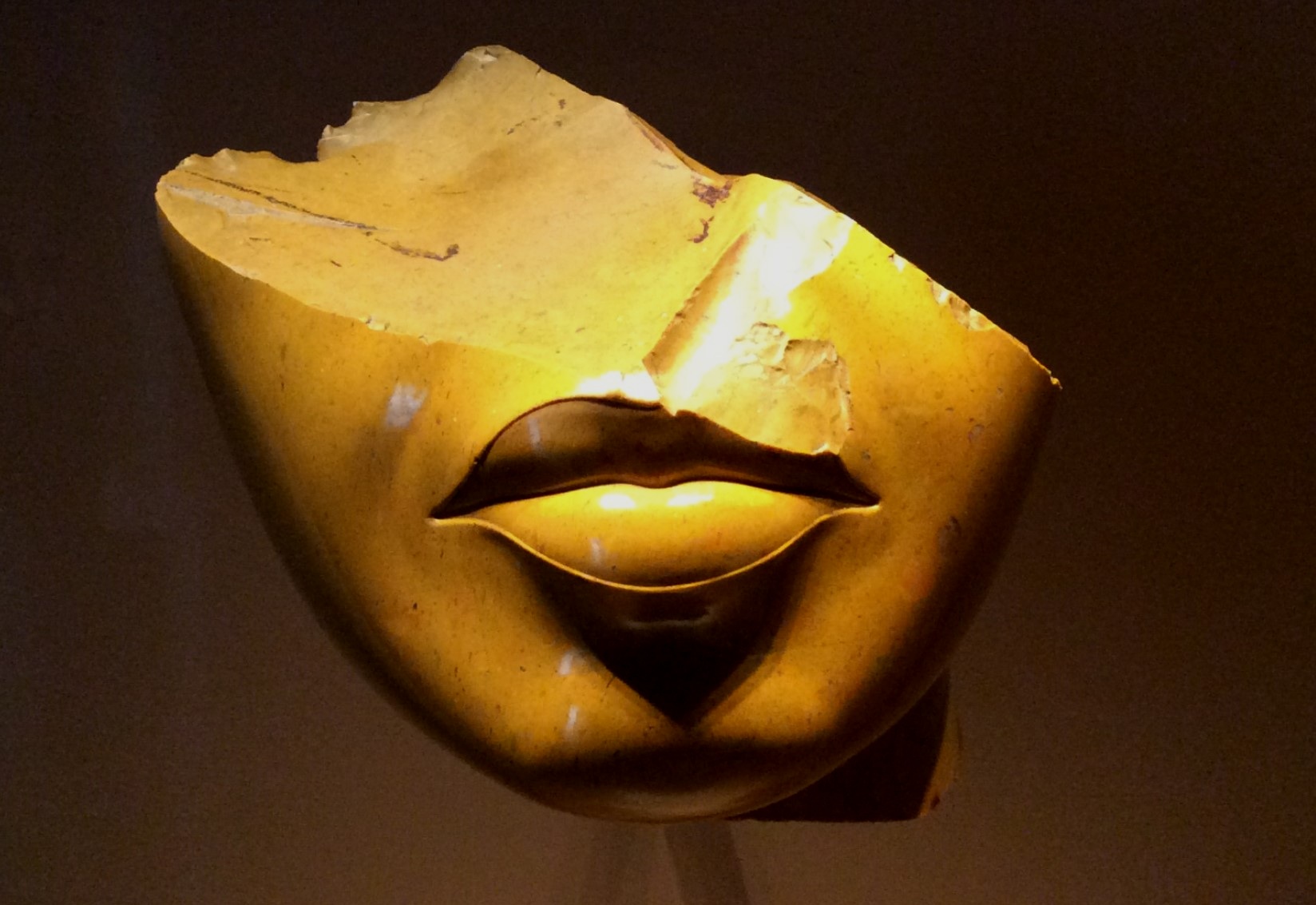Neuroscience and Epigenetics
Photograph: MRI scans of the brain. Photo credit: Iran Daily, Creative Commons.
Introduction
The resources below highlight various insights from neuroscience and epigenetics, as they point towards a normative or normative range of human development, which often overlaps with Jesus’ vision of the human and human relations.
Conversation Stations
These are the images used in artistic physical displays. They are survey questions and conversation starters that are topically and thematically organized. They demonstrate how Jesus is relevant to each topic or theme. You can also just view the images on your device. If you would like, see all our Conversation Stations; below are the ones that relate to the topic of Desire.
Find Your Heart's Desire? (and instructions and theological essay)
Is a Good Friend Hard to Find? (and instructions and conversation tree)
What Story Do You Live In? (and associated message)
Does the Good Outweigh the Bad? (and instructions)
Whose Justice? (and instructions and Christian Restorative Justice Study Guide)
Whose Justice? for Harvard Law School
What Can We Do About Evil? (and instructions and conversation tree) and smaller version and brochure version
Messages and Resources on Neuroscience and Epigenetics
A Neuroscientific Reason for Why Retributive Justice is from the Fall, and Penal Substitution is Immature. The Anastasis Center blog, Apr 28, 2016. On the Fall and the exile from the Garden. Why does retributive justice appeal to the animalistic part of our brains, while restorative justice actually does work but demands more of us?
Neuroscience and the Theological Anthropologies of Irenaeus and Origen A paper submitted to Dr. George Dragas at Holy Cross Greek Orthodox Seminary, May 2019. I believe Origen made a mistake when he said that the soul is in the image of God and the body is not. This makes Origen hard to reconcile with Genesis 1 - 2 and also modern neuroscience, which affirms a body-brain-mind connection.
Other Resources on Christian Faith, Neuroscience, and Epigenetics
Edward T. Welch, Blame It on the Brain: Distinguishing Chemical Imbalances, Brain Disorders, and Disobedience. P&R Publishing | Amazon page, 1998.
Benedict Carey, A Neuroscientific Look at Speaking in Tongues. New York Times, Nov 7, 2006.
William M. Struthers, Wired for Intimacy: How Pornography Hijacks the Male Brain. InterVarsity Press | Amazon page, 2009.
Curt Thompson, Anatomy of the Soul: Surprising Connections between Neuroscience and Spiritual Practices That Can Transform Your Life and Relationships. Tyndale | Amazon page, Jun 1, 2010.
Marlene Winell and Valerie Tarico, The Sad, Twisted Truth About Conservative Christianity's Effect on the Mind. Salon, Nov 1, 2014. - "Some religious beliefs may alter brain function..."
Skye Jethani, Dr. Jim Wilder: This is Your Brain on God. Holy Post, Episode 412, Jul 8, 2020. On the brain, attachments, how people change, and how we develop a love for Jesus
Curt Thompson, The Soul of Desire: Discovering the Neuroscience of Longing, Beauty, and Community. InterVarsity Press | Amazon page, Oct 5, 2021.
Other Resources on Neuroscience and Epigenetics
Michael D. Lemonick, How We Get Addicted. Time, Jul 5, 2007. See also Time Magazine Interactive, Addiction and the Brain. Time.
Benedict Carey, Who's Minding the Mind? New York Times, Jul 31, 2007.
Melinda Wenner, Study: Religion is Good for Kids. LiveScience, Jan 11, 2008.
John Cloud, Epigenetics: Why Your DNA Isn't Your Destiny. Time, Jan 6, 2010.
Center for Disease Control, Adverse Childhood Experience Study: studies published from 1998 to 2011
Jonah Lerner, Depression's Upside. New York Times, Feb 25, 2010. includes links between depression and mental exhaustion, depression and brain activity, depression and creative problem solving
Gail Dines, Pornland: How Porn Has Hijacked Our Sexuality. Beacon Press | Amazon page, Apr 2011.
Susan Krauss Whitbourne, The Essential Guide to Defense Mechanisms. Psychology Today, Oct 22, 2011.
Judith Horstman, The Scientific American Book of Love, Sex, and the Brain: The Neuroscience of How, When, Why, and Who We Love. Jossey-Bass | Amazon page, Dec 27, 2011.
William F. N. Chan, et.al. Male Microchimerism in the Human Female Brain. PLOSone, Sep 26, 2012.
LaVelle Hendricks, Sam Bore, Dean Aslinia, Guy Morriss, The Effects of Anger on the Brain and Body. National Forum Journal of Counseling and Addiction, 2013. see also Sarah N. Garfinkel, et. al., Anger in Brain and Body: The Neural and Psychological Perturbation of Decision-Making by Emotion. Soc. Cogn. Affect. Neuroscience, Jan 2016. and infographic How Anger Affects the Brain and Body. National Institute for the Clinical Application of Behavioral Medicine.
Joshua Lang, Awakening. The Atlantic, Jan 2, 2013. On consciousness
Judith E. Glaser, Your Brain Is Hooked on Being Right. Harvard Business Review, Feb 28, 2013.
Daniel Reisel, The Neuroscience of Restorative Justice. TED talk, Feb 2013.
David Chalmers, How Do You Explain Consciousness. TED talk, Mar 2013.
Christopher Bergland, The Neuroscience of Calming a Baby. Psychology Today, Apr 22, 2013.
Dan Hurley, Grandma's Experiences Leave a Mark on Your Genes. Discover Magazine, Jun 11, 2013.
Daniel Amen, The Most Important Lesson From 83,000 Brain Scans. TEDx Orange Coast, Oct 16, 2013. how physical brain health helps mental and emotional health
Derek Thompson, Your Brain on Poverty: Why Poor People Seem to Make Bad Decisions. The Atlantic, Nov 22, 2013.
Giulio Tononi, Consciousness and the Brain. Visarga H | Vimeo video, Oct 2013.
Janeen Interlandi, The Toxins That Affected Your Great-Grandparents Could Be In Your Genes. Smithsonian Magazine, Dec 2013.
Richard Gray, Phobias May Be Memories Passed Down in Genes From Ancestors. Telegraph UK, Dec 1, 2013.
Gregory Ciotti, Is Your Brain Truly Ready for Junk Food, Porn, or the Internet? Sparring Mind blog.
Peg Streep, 6 Things You Didn't Know About How Your Brain Works. Psychology Today, Jan 13, 2014.
Shruti Ravindran, Twilight in the Box. Aeon Magazine, Feb 27, 2014. what solitary confinement does to the brain
Alanna Ketler, This Study Will Make You Think Twice About Who You Are Getting Into Bed With. Collective Evolution, Mar 18, 2014.
Colin Schultz, Pot Smokers' Brains Are Different. Smithsonian Magazine, Apr 17, 2014.
Emma Innes, How the Trauma of Life Is Passed Down in SPERM, Affecting the Mental Health of Future Generations. Daily Mail UK, Apr 23, 2014.
Christopher Bergland, Social Disadvantage Creates Genetic Wear and Tear. Psychology Today, Apr 15, 2014.
Michaeleen Doucleff, Mom's Diet Right Before Pregnancy Can Alter Baby's Genes. NPR, Apr 29, 2014.
Sam Kean, Phineas Gage: Neuroscience's Most Famous Patient. Slate, May 6, 2014.
Justine Alford, Becoming A Father Can "Rewire" A Man's Brain. IFLScience, May 29, 2014.
Laura Dimon, How Solitary Confinement Hurts the Teenage Brain. The Atlantic, Jun 30, 2014.
Anita Collins, How Playing an Instrument Benefits Your Brain. TED Ed video, Jul 22, 2014.
Nury Vittachi, Scientists Discover That Atheists Might Not Exist, and That's Not a Joke. Science 2.0, Jul 6, 2014. cited by Casey Luskin, Evolutionary Studies Suggest that Atheists, Whatever They Say to the Contrary, Really Do Believe in God. Evolution News, Aug 1, 2014. says "karmic justice". that is, cosmic retributive justice. is the "default setting" for the "religious part" of our brains. I underscore that this finding comes from the current understanding of cognitive neuroscience. It helps to explain to me why, when John Calvin developed the idea of penal substitution, that theory played on the "karmic justice" section of the human brain and then served to *supplant* the theological structure of genuine Trinitarian thought. For the first 1500 years, Christian Trinitarian theology was *not aligned* with the "default setting" of neural circuitry in our brains.
The earliest atonement theory was medical and not penal, the implications for relationships and socio-political ethics was for restorative, not retributive, justice, and the biblical motif of fire was interpreted as rehabilitative and purifying, not retributive and punishing. So: Christian theology and teaching of this type. firmly held by the Eastern Orthodox, along with Catholics and Protestants like me who are calling for a return to the Nicene period. have to consistently *overcome* something deeply wired in our brains. It does not take advantage of the brain, or "hijack" the brain, as Dr. Andy Thomson states at the American Atheists Conference 2009, who claimed to have no "bias" whatsoever. of course. .
We should not be surprised now that the most deeply philosophical forms of both ancient Hindu and ancient Greek cosmology *agreed* about cycles of karma, reincarnation, and the principle of retribution. That view of the world just makes more sense to us intuitively. It also concurs with the more natural observations of how the world works: in endless cycles and circles. But, Judeo-Christianity, as a belief system, has a higher burden of proof. The only way it can offer an epistemology by which it can be evaluated is in the realm of history. Just as serving on a jury requires us to dig into the unrepeatable history of past personal, human events, so the epistemology that is appropriate to Judeo-Christianity is a historical epistemology. Are there signposts in history upon which it builds the case for a good God who intervenes on behalf of human beings and against human evil? Entertaining as videos like Dr. Thomson's are, nothing conclusive can be drawn from them, except that some practitioners of neuroscience overstate themselves, as they're not even in the appropriate academic discipline.
Dr. Nadine Burke Harris, How Childhood Trauma Affects Health Across a Lifetime. TED Talk, Sep 2014. re: when a child experiences abuse, neglect, parental mental illness, substance abuse, incarceration, separation or divorce, domestic violence
Melissa Dahl, Why Men Don't Remember Anything. New York Magazine, Sep 19, 2014.
Sam Brodey, Scientists Dissected the Brains of 79 NFL Players. What They Found Is Disturbing. Mother Jones, Oct 1, 2014.
Jesse Singal, How Fairness Makes Our Brains Tingle. New Yorker Magazine, Oct 20, 2014.
Priya Joshi, Learning a New Language Stimulates Same Pleasure Centres in the Brain as Sex and Chocolate. International Business Times, Oct 25, 2014.
Eileen Shim, Scientists Have Discovered an Activity Just as Pleasurable as Sex, Drugs and Gambling. Mic, Oct 28, 2014.
Sara Reardon, Gut-Brain Link Grabs Neuroscientists. Nature, Nov 12, 2014.
Judith Shulevitz, The Science of Suffering: Kids Are Inheriting Their Parents' Trauma. Can Science Stop It? New Republic, Nov 16, 2014.
Alexis Tsioulcas, Musicians' Brains Really Do Work Differently, In a Good Way. NPR, Nov 20, 2014.
Robert Martone, Scientists Discover Children's Cells Living in Mother's Brains. Scientific American, Dec 4, 2014.
Carol Dweck, The Power of Believing That You Can Improve. TED Talk, Dec 17, 2014.
Yudhijit Bhattacharjee, Baby Brains. National Geographic, Jan 2015. - on the first year of a baby's development
Feel Guide, New Research Discovers Depression Is An Allergic Reaction to Inflammation. Feel Guide, Jan 6, 2015.
Amy Ellis Nutt, Music Lessons Spur Emotional and Behavioral Growth in Children, New Study Says. Washington Post, Jan 7, 2015.
Tom Barnes, Science Just Discovered Something Amazing About What Those Childhood Piano Lessons Did to You. Mic, Jan 8, 2015.
Adrienne Lafrance, What Happens to a Woman's Brain When She Becomes a Mother. The Atlantic, Jan 8, 2015.
Matt Fradd, Neuroscience Has Proved That Porn is Literally Making Men's Brains More Childish. LifeSite News, Jan 14, 2015.
Elahe Izadi, How Men and Women Process Emotions Differently. Washington Post, Jan 23, 2015.
Fresh Air, Why Teens Are Impulsive, Addiction-Prone And Should Protect Their Brains. NPR, Jan 28, 2015.
Sound Medicine, Childhood Trauma Leads to Brains Wired for Fear. Sound Medicine News, Feb 3, 2015.
Gary Wilson, Your Brain on Porn: Internet Pornography and the Emerging Science of Addiction. Commonwealth Publishing | Amazon page, Feb 2015.
Pam Weintraub, The Elastic Brain. Aeon, Feb 27, 2015.
Claire Landsbaum, What a Neuroscientist Said About Eminem's Brain. New York Magazine, Mar 3, 2015.
Gretchen Reynolds, One Twin Exercises, the Other Doesn't. New York Times, Mar 4, 2015.
Allison Eck, Stress from Poverty Decreases Child Brain Sizes - Even at Birth. PBS, Mar 31, 2015.
Lizette Borreli, Birth Control Pill May Alter Woman's Brain Structure; Are There Real-World Consequences? Medical Daily, Apr 7, 2015.
Lisa Miller, Why Kids Need Spirituality. New York Magazine, Apr 16, 2015.
Trace Dominguez, How Poverty Changes Your Brain. Test Tube video, Apr 22, 2015.
Destin Sandlin, The Backwards Brain Bicycle. Smarter Every Day, Apr 24, 2015. about brain bias, learning and unlearning
Peter Gray, Early Academic Training Produces Long-Term Harm. Psychology Today, May 5, 2015.
Florence Waters, Is Wi-Fi Making Your Child Ill? France Bans Wi-Fi in Nurseries and Primary Schools. Telegraph UK, May 9, 2015.
Richard A. Friedman, Infidelity Lurks in Your Genes. New York Times, May 24, 2015.
Annalaura Montgomery Chuang, Formed by War: Combat Wounds the Soul, but the Gospel Offers Hope. Christianity Today, May 26, 2015.
Debra Kain, Researchers Find Missing Link Between Brain and Immune System. Neuroscience News, Jun 1, 2015.
Kathy Gilsinian, The Buddhist and the Neuroscientist: What Compassion Does To Your Brain. The Atlantic, Jul 4, 2015.
Dylan Goldstein, The Neuroscience of 6 Drugs In a Nutshell. Brain Decoder, Jun 26, 2015.
Stephanie Pappas, The Frustrating Search for Free Will. Brain Decoder, Jul 6, 2015.
Dylan Goldstein, Lonely People's Brains Look 'Hungry' For Social Connection. Brain Decoder, Jul 6, 2015.
Daryl Cameron, Michael Inzlicht, William Cunningham, Empathy is Actually a Choice. New York Times, Jul 10, 2015.
James Hamblin, The Paradox of Effort: A Medical Case Against Too Much Self-Control. The Atlantic, Jul 16, 2015.
Matt Fradd, 4 Ways Porn Warps the Male Brain. Covenant Eyes, Jul 31, 2015.
Anil Ananthaswamy, The Man Who Wasn't There: Investigations Into the Strange New Science of Self. Dutton | Amazon page, Aug 4, 2015.
Vivian Giang, Your Brain Is Particularly Vulnerable to Trauma at Two Distinct Ages. Quartz, Aug 4, 2015.
Donna Jackson Nakazawa, The Last Best Cure: 7 Ways Childhood Adversity Changes the Brain. Psychology Today, Aug 7, 2015.
Christian Jarrett, The Neuroscience of Being a Selfish Jerk. New York Magazine, Aug 19, 2015.
Helen Thomson, Study of Holocaust Survivors Finds Trauma Passed on to Children's Genes. The Guardian, Aug 21, 2015.
Big Think Editors, Why Black Mental Health Is Different From White Mental Health. Big Think, Aug 26, 2015.
Christian Jarrett, Does Reading Literature Really Beef Up Your Brain? New York Magazine, Sep 3, 2015.
Christian Jarrett, Drugs and Talk Therapy Affect the Brain in Different Ways. New York Magazine, Sep 30, 2015.
Dan Gray, The Serious Mental Costs of Watching Porn. Fight the New Drug, Oct 16, 2015.
Artur Rosman, Top 10 Books on Theology and Neuroscience. Patheos, Oct 22, 2015.
Victoria Woollaston, Could Your Views on God and Immigration Be Changed Using Magnets? Brain Simulation Can Alter Beliefs, Study Claims. Daily Mail, Oct 14, 2015. and the interpretation by Joel McDurmon, Atheists Embarrassed: Study Proves Atheism Uses Less Brain Function. The American Vision, Oct 26, 2015.
Abraham Riesman and Jesse Singal, This Is Your Brain on Advertising: Why Kids Are So Vulnerable to Marketing. New York Magazine, Nov 3, 2015.
Christian Jarrett, When Jealousy and Empathy Collide in the Brain. New York Magazine, Nov 5, 2015.
Carl Zimmer, Parents May Pass Down More Than Just Genes, Study Suggests. New York Times, Dec 3, 2015.
Emmeline Zhao, Why Identity and Emotion Are Central to Motivating the Teenage Brain. KQED, Dec 10, 2015.
Dawn Papple, Neuroscience Research: Does Free Will Actually Exist? Inquisitr, Jan 10, 2016.
Jennifer Delgado, Did You Know That Intelligence is Inherited from Mothers? Psychology Spot, Mar 2016.
Ian Sample, Neuroscientists Create 'Atlas' Showing How Words Are Organised in the Brain. Guardian, Apr 27, 2015.
Mark Wolynn, It Didn't Start With You: How Inherited Family Trauma Shapes Who We Are. Science & Nonduality, Apr 28, 2016. review of his book
Robert Epstein, The Empty Brain. Aeon, May 18, 2016. On why the brain is not a computer
Emily Deruy, The Complex Lives of Babies. The Atlantic, Jun 20, 2016.
Maia Szalavitz, Can You Get Over an Addiction? New York Times, Jun 25, 2016.
Sean Kane, 7 Science-Backed Reasons You Should Make Art, Even If You're Bad At It. Business Insider, Jun 29, 2016. art's impact on the brain
Rignam Wangkhang, Can Trauma Be Passed from Parent to Child? Ozy, Jul 7, 2016.
Taniya Chadha, Role of Nutrition in the Cognitive Development of Preschoolers. My City 4 Kids, Jul 14, 2016.
Sumathi Reddy, Can This Brain Exercise Put Off Dementia? Wall Street Journal, Jul 25, 2016.
Douglas Main, Breastfed Infants' Brains Develop Better, Faster. Newsweek, Aug 1, 2016.
Donna Jackson Nakazawa, Childhood Trauma Leads to Lifelong Chronic Illness - So Why Isn't the Medical Community Helping Patients? ACES Too High News, Aug 10, 2016.
Gaia Vince, How Language Is Processed By Your Brain. CNN, Aug 16, 2016.
James Hamblin, Why One Neuroscientist Started Blasting His Core. The Atlantic, Aug 24, 2016.
Julie Sedivy, How Morality Changes in a Foreign Language. Scientific American, Sep 14, 2016.
Michael Alison Chandler, This Doctor Pioneered a Way to Treat Stress in Children, a Startling Source of Future Disease. Washington Post, Oct 6, 2016.
Fergus Walsh, Smoking Causes Hundreds of DNA Charges. BBC News, Nov 3, 2016.
James Hamblin, Why Morning People Thrive. The Atlantic, Nov 4, 2016.
Rod Dreher, On Time: Arrival. The American Conservative, Nov 24, 2016. spoiler alert! but great exploration of neuroplasticity and language
Earl Miller, Here’s Why You Shouldn’t Multitask, According to an MIT Neuroscientist. Fortune, Dec 7, 2016.
Olivia Goldhill, Scientists Say Your "Mind" Isn't Confined to Your Brain, or Even Your Body. Quartz, Dec 24, 2016.
Jerry Bowyer, Looking for a Cognitive Enhancer? Skip the Drugs and Try Fasting Instead. Forbes, Jan 6, 2017.
Bruce Goldman, Two Minds: The Cognitive Differences Between Men and Women. Stanford University Medicine, Spring 2017. On the neuroscientific study of gender differences. See also Leonard Sax, A New Study Blows Up Old Ideas About Girls and Boys. Psychology Today, Mar 27, 2019. Studies of the neural development of fetuses show major differences between girls and boys, challenging the views of Judith Butler and Cordelia Fine that “gender” has no biological basis, for example Genevieve Fox, Want Meet the Neuroscientist Shattering the Myth of the Gendered Brain. The Guardian, Feb 24, 2019. "Why asking whether your brain is male or female is the wrong question."
Olivia Goldhill, For Half a Century, Neuroscientists Thought They Knew How Memory Worked. They Were Wrong. Quartz, Apr 15, 2017.
Tara Garcia Mathewson, How Poverty Changes the Brain. The Atlantic, Apr 19, 2017.
Lauren Gelman, Benefits of Reading: Getting Smart, Thin, Healthy, Happy. Reader's Digest, Apr 2017.
Tim Urban, Neuralink and the Brain’s Magical Future. Wait But Why, Apr 20, 2017.
Katherine Sellgren, Babies with Involved Fathers Learn Faster, Study Finds. BBC, May 10, 2017.
Frederica Perera, The Womb Is No Protection From Toxic Chemicals. New York Times, Jun 1, 2017.
Newsner, Latest Research Reveals the More You Hug Your Kids - the Smarter They Get. Newsner, Jun 9, 2017.
Tristan Harris, How Your Brain Is Getting Hacked: Facebook, Tinder, Slot Machines. Big Think, Jul 4, 2017. speaks of “back doors into the brain” like approval from others, and how Facebook knows how long your profile picture shows up on other people’s screens. Another vulnerability is the variable schedule reward, like the slot machine: it creates addictions 2 - 3 times faster than any other casino machine, and garners more money than movies, baseball, and amusement parks combined. You pull a lever and sometimes you get a reward. Our phones are a slot machine.
John Schwartz, Learning to Learn: You, Too, Can Rewire Your Brain. New York Times, Aug 4, 2017.
Thoughty2, The Truth Why Modern Music Is Awful. Thoughty2, Aug 5, 2017. a Youtube video; at 17 - 18 minutes, mentions dopamine and brain activity
James Taranto, The Politicization of Motherhood. Wall Street Journal, Oct 27, 2017. research on the first three years of child development, and the political reception of this science
Scott Berson, How Often You Hold Your Baby Actually Affects Their DNA, Study Finds. Miami Herald, Nov 28, 2017.
Olga Khazan, Even Small Amounts of Alcohol Impair Memory. The Atlantic, Dec 15, 2017.
Janelle Nanos, Stop Answering Your Phone. Boston Globe, Jan 6, 2018. discusses neurological impact on young people
Sean Illing, This is What Love Does to Your Brain. Vox, Apr 23, 2018.
Brian Resnick, We're Underestimating the Mind-Warping Potential of Fake Video. Vox, Apr 23, 2018.
Ari Ne'eman, The CDC Just Announced One in 59 Children Are Autistic. Here's Why That's Not Evidence of an Epidemic. Vox, Apr 30, 2018.
Ashley Fetters, The Exceptional Cruelty of a No-Hugging Policy. The Atlantic, Jun 20, 2018. See also Charlie Baily and Schuyler Henderson, The Clinical Case for Keeping Families Together. The Atlantic, Jun 20, 2018.
Ed Yong, A Landmark Study on the Origins of Alcoholism. The Atlantic, Jun 21, 2018. Studies of the amygdala.
Meghna Chakrabarti and Chris Citorik, How Motherhood Changes The Brain. NPR, Jul 18, 2018. A 14 minute radio segment. See also Chelsea Conaboy, Motherhood Brings the Most Dramatic Brain Changes of a Woman’s Life, So Why Does Prenatal Care Ignore the Topic Altogether? Boston Globe, Jul 17, 2018.
Sharon Hewitt Rawlette, What If Consciousness Comes First? Psychology Today, Jul 22, 2019. “Bridging the mind-body gap will require a fundamental shift in perspective.”
Katherine J. Wu, Dads Pass On More Than Genetics in Their Sperm. Smithsonian, Jul 26, 2018.
Keith Brannon, Tulane Psychiatrist Wins National Award for Research That Shows How Trauma Seeps Across Generations. Tulane University, Aug 17, 2018.
Allison Aubrey, Want To Keep Your Brain Sharp? Take Care Of Your Eyes And Ears. NPR, Oct 22, 2018.
The Young Turks, Fear and Loathing in the Conservative Mind. The Young Turks, Feb 14, 2019. the emotion of disgust, and its correlation to politically conservative instincts; how language triggering disgust is often used with religious ideology of a "pure community." References Kathleen McAuliffe, Fear This Is Your Brain on Parasites: How Tiny Creatures Manipulate Our Behavior and Shape Society. Houghton Mifflin Harcourt | Amazon page, Jun 2016. See also Kathleen McAuliffe, The Psychology (and Politics) of Disgust. Big Think, Sep 23, 2016. See also Bobby Azarian, A Complete Psychological Analysis of Trump's Support. Psychology Today, Dec 27, 2018. “Science can help us make sense of the president's political invincibility.”
Kevin Roose, Do Not Disturb: How I Ditched My Phone and Unbroke My Brain. New York Times, Feb 23, 2019.
Daily Health Post Editorial, New Study: The More you Hug your Kids, the More Their Brains Develop. Daily Health Post, Jul 1, 2019.
Justin Brown, Neuroscience Reveals: This Is How Gratitude Literally Rewrites Your Brain to Be Happier. Real Farmacy, Jul 13, 2019.
Bahar Gholipour, A Famous Argument Against Free Will Has Been Debunked. The Atlantic, Sep 10, 2019. “For decades, a landmark brain study fed speculation about whether we control our own actions. It seems to have made a classic mistake.”
Jerome Groopman, Can Brain Science Help Us Break Bad Habits? The New Yorker, Oct 21, 2019. “Studies suggest that relying on will power is hopeless. Instead, we must find strategies that don’t require us to be strong.”
Deborah Copaken, What Menopause Does to Women’s Brains. The Atlantic, Nov 8, 2019. The risk of Alzheimer’s; 2/3 of all Alzheimers patients are women; estrogen is a neuro-protective hormone, so when it declines, the brain is more vulnerable.
David Brooks, The Wisdom Your Body Knows. New York Times, Nov 28, 2019. Regarding the body-brain connection.
Lydia Denworth, The Loneliness of the “Social Distancer” Triggers Brain Cravings Akin to Hunger. Scientific American, Apr 2, 2020. “A study on isolation’s neural underpinnings implies many may feel literally “starved” for contact amid the COVID-19 pandemic”
Jerome D. Lubbe, The Brain-Based Enneagram: You Are Not A Number. Dr. Jerome D. Lubbe | Amazon page, May 2020.
Bobby Azarian, Neuroscientist Explains Why Christian Evangelicals Are Wired to Believe Trump’s Lies. AlterNet, Aug 3, 2020. “It takes more mental effort to reject an idea as false than to accept it as true. In other words, it’s easier to believe than to not.”
Lisa Feldman Barrett, People’s Words and Actions Can Actually Shape Your Brain — A Neuroscientist Explains How. TED, Nov 17, 2020. “How do the people around you influence your body budget and rewire your adult brain? Your brain changes its wiring after new experiences, a process called plasticity. Microscopic parts of your neurons change gradually every day. Branch-like dendrites become bushier, and their associated neural connections become more efficient. Little by little, your brain becomes tuned and pruned as you interact with others. Some brains are more attentive to the people around them and others less so, but everybody has somebody. Ultimately, your family, friends, neighbors and even strangers contribute to your brain’s structure and function and help your brain keep your body humming along. This co-regulation has measurable effects. When you’re with someone you care about, your breathing can synchronize, as can the beating of your hearts — whether you’re in casual conversation or a heated argument. This sort of physical connection happens between infants and caregivers, therapists and clients, even people taking a yoga class or singing in a choir together.”
Relevant Magazine, You’ve Heard About Mental Health — Let’s Talk About Brain Health. Relevant Magazine, Nov 26, 2020.
James Kimmel, Jr., What the Science of Addiction Tells Us About Trump. Politico, Dec 12, 2020. “It turns out that your brain on grievances looks a lot like your brain on drugs. And that’s a problem not just for the outgoing president, but for the rest of us.”
Michael Hobbes, What Is The Internet Doing To Boomers’ Brains? Huffington Post, Dec 29, 2020. and Peter Manseau, His Pastors Tried to Steer Him Away from Social Media Rage. He Stormed the Capitol Anyway. Washington Post, Feb 19, 2020. “This account of one alleged rioter’s path to the Jan. 6 insurrection is based on his extensive Facebook posts, court documents, and the recollections and social media messages of several people who know him. Reached by phone this week, Sparks, who was released after his Jan. 19 arrest, declined to comment on anything related to his presence at the Capitol.”
Dan Shapiro, Robert Sapolsky et.al. The Science Behind ‘Us vs. Them’. Big Think, May 9, 2021. re: oxytocin and the limbic system in the brain increasing both the “us” and the “them” sensibilities; facial recognition and trustworthiness; political behavior rewards loyalty — this explains why economic issues may overlap with, but are not synonymous with, ethnic-racial groupings.
Virginia Hughes, Scientists Drove Mice to Bond by Zapping Their Brains With Light. New York Times, May 25, 2021. “The study, a tour de force in bioengineering, comes after two decades of research on brain-to-brain synchrony in people.” Fascinating connections suggested between neuroscience and personal relations.
Luke Burgis, Social Media Addiction - How It Changes Your Brain. Big Think, Nov 28, 2021. uses mimetic desire to explain. “All desire is a form of transcendence. We desire to go beyond the boundaries, to go over the mountain, to be the kind of person that we don’t feel that we currently are.”
NBC News, New Study Finds Developmental Differences For Children Born During Pandemic. NBC News, Jan 5, 2022. Women who were pregnant while enduring homelessness or eviction, and food insecurity during the beginning of the COVID-19 pandemic had infants with developmental delays. At six months, infants were slower in fine motor skills, gross motor skills, and social skills.
Cathy O’Neil, Why Can’t We Pay Attention Anymore? New York Times, Feb 3, 2022. “Johann Hari’s book “Stolen Focus” and Jacob Ward’s book “The Loop” discuss how technology and modernity are negatively and chronically affecting our brains and behavior. They focus on the individual experience of living in this moment, and how modern technology is limiting our choices and personal notions of freedom and consciousness. These well-researched surveys draw attention to important concerns while avoiding simplistic self-improvement recommendations.”
Amanda McCracken, How Longing [for Love] Keeps Us from Healthy Relationships. TEDx Talks, Sep 29, 2023. McCracken shares her personal journey of realizing that she had become addicted to the longing for love, which was rooted in a sense of personal shame and also neuro-chemical realities about how we can become addicted to unrealistic fantasies, rather than believing she was worthy of love and understanding what healthy love is. This insight is going to be increasingly important to Christian spiritual formation.
Eric W. Dolan, New Study Links Brain Network Damage to Increased Religious Fundamentalism. PsyPost, Sep 26, 2024. “A new study published in Proceedings of the National Academy of Sciences suggests that specific networks in the brain, when damaged, may influence the likelihood of developing religious fundamentalism. By analyzing patients with focal brain lesions, researchers found that damage to a particular network of brain regions—mainly in the right hemisphere—was associated with higher levels of fundamentalist beliefs. This finding provides new insight into the potential neural basis of religious fundamentalism, which has long been studied in psychology but less so in neuroscience.”
Desire: Topics:
Here’s how to understand this section on Desire: We believe Jesus’ own human desires, journey, and teaching are normative for human becoming, so we pursue Christian Spiritual and Emotional Formation to help us better understand pastoral, relational, and communal questions that come up as we pursue Jesus’ vision for human flourishing. We stay aware of research and reflections on Human Moral and Emotional Development. Many insights into the mind-brain-body connection in Neuroscience and Epigenetics and Sleep and Rest are helpful. We follow research on Friendship and Happiness, track resources about Greed and How Money Makes Us More Greedy, point out in Consumption how capitalist overconsumption and addiction challenge the notion that we are “sovereign individuals,” maintain the biblical critique of Interest Rate Lending and Debt as a way people fund overconsumption and entrap themselves, reflect on Sex as part of human moral and emotional development; we critique the Sex Industry for how it distorts us. Human Destiny itself can be understood through the lens of desire.













